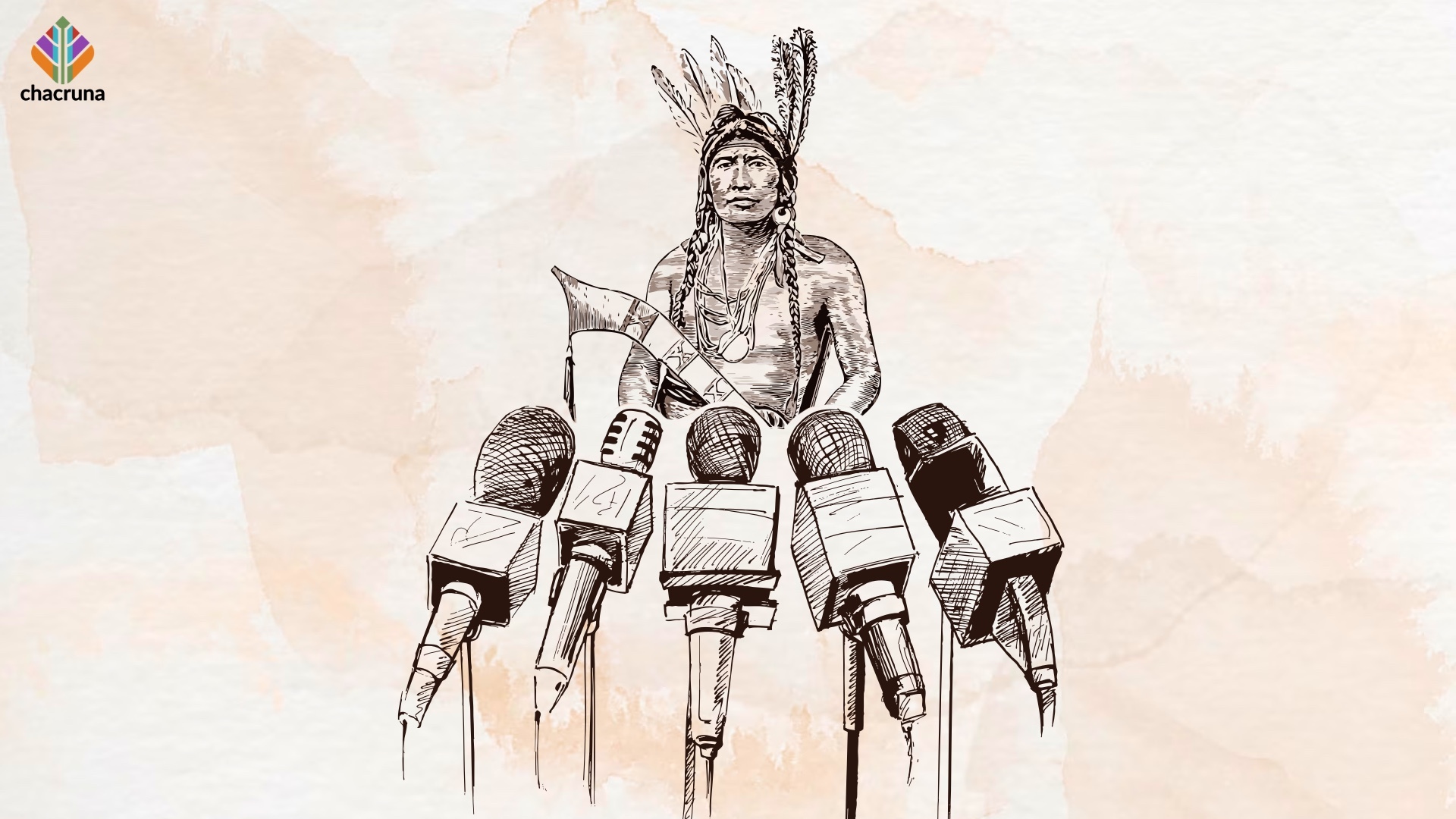A new resource provides a platform for Indigenous perspectives on psychedelics
Chacruna Institute for Psychedelic Plant Medicine announces the launch of Indigenous Voices in the Psychedelic Renaissance, a new resource that compiles years’ worth of some of the Indigenous perspectives on psychedelics. The resource, a living archive of over 70 articles, in-person dialogues, discussions in virtual community forums, and conference presentations by Indigenous scholars and thought leaders, is the first of its kind. An essential tool for anyone interested in the intersections of history, science, culture, ecology, and social justice.
An essential tool for anyone interested in the intersections of history, science, culture, ecology, and social justice.
Daniela Peluso, Ph.D, anthropologist and Chacruna Board member, states that “Indigenous Voices platform is a handy way to access Chacruna’s representation of some of the many voices in the field of plant medicines, a key pillar of the Chacruna mission.” Since it was founded, Chacruna Institute has centered Indigenous perspectives, recognizing their vital importance to the history and future of the psychedelic movement. Long pushed to the margins by White and European psychedelic movement leaders, Indigenous voices are more critical than ever as conversations and policies evolve. Indeed, “the psychedelic renaissance cannot ignore Indigenous voices,” shares Dr. Henrique Antunes, Ph.D., researcher of the International Postdoctoral Program of the Brazilian Center of Analysis and Planning (CEBRAP) and a member of Chacruna’s Ayahuasca Community Committee. “It is important to hear what Indigenous people have to say about the impacts of the worldwide expansion of the use of plant medicines, and how this phenomenon has been affecting their lives and communities.”
“It is important to hear what Indigenous people have to say about the impacts of the worldwide expansion of the use of plant medicines, and how this phenomenon has been affecting their lives and communities.”
Dr. Henrique Antunes
“The immemorial guardians of sacred plants and psychedelic cultures are the traditional and Indigenous peoples,” says Glauber Loures de Assis, Ph.D., Associate Director of Chacruna Latinoamérica in Brazil. “It is important that reciprocal relationships are established between psychedelic enthusiasts in the Global North and traditional communities. When participating in ceremonies with sacred plants you can seek to find out what relationships local leaders have with Indigenous leaders and the local population. You can always give preference to supporting NGOs, conferences, and scientific research committed to giving something back to Indigenous peoples, as is the case with IRI [Indigenous Reciprocity Initiative], as well as social movements that support Indigenous struggles for land.”
Charuna has multiple resources that represent or reflect Indigenous voices: virtual Community Forums on topics including cultural appropriation and cultural extermination, psychedelics and Native American Heritage month, ayahuasca and religious freedom, Yagé and Chagro in Colombia, plant medicine and environmental justice, and Indigenous worldviews, property and extractivism in the psychedelic renaissance. Recorded in-person dialogues dating to 2019 highlight the healing and rise of Indigenous cultures in the Amazon, talks from the premiere of The Peyote Files (a documentary featuring peyote expert and conservationist Dr. Martin Terry).
Conference presentations in the collection include sessions from Psychedelic Science (2023), Queering Psychedelics and Queering Psychedelics II (2019 and 2023), Religion and Psychedelics (2022), Psychedelics, Ancestors, and Healing Justice (2022), the International Symposium on Psilocybin (2021), Sacred Plants in the Americas I and II (2018 and 2021); the Psychedelic Liberty Summit (2020); and Cultural and Political Perspectives on Psychedelic Science (2018).
Overall, Chacruna’s Indigenous Voices library is an indispensable addition to help continue and deepen these critical conversations that have been missing in the field. In line with its mission of promoting reciprocity in the psychedelic community and advancing psychedelic justice through the curation of critical conversations and voices, the library will be a key resource for scholars, scientists, students and enthusiasts seeking nuanced understanding of the psychedelic movement. Indigenous Voices, is a distinct part of the Chacruna Chronicles highlighting articles written by or including Indigenous people and communities. Pieces include interviews with Indigenous people, Native American statements regarding legal policies, statements on Indigenous conferences, and more.
“Chacruna, our non-profit, was named after ayahuasca, a plant-teacher that inspired so many of us. Indigenous leaders have been the ones that discovered these substances, and are world experts in these topics. Giving visibility to their voices and supporting their political struggles feels like the completion of a cycle.”
Bia Labate, Ph.D
“We are happy to launch this free resource that contemplates nearly a decade of efforts,” concludes Bia Labate, Ph.D, Chacruna’s Executive Director. She continues: “Chacruna, our non-profit, was named after ayahuasca, a plant-teacher that inspired so many of us. Indigenous leaders have been the ones that discovered these substances, and are world experts in these topics. Giving visibility to their voices and supporting their political struggles feels like the completion of a cycle.”
Art by Luana Lourenço.
About Chacruna Institute
The Chacruna Institute for Psychedelic Plant Medicines, is a 501(c)(3) non-profit organization co-founded by Brazilian anthropologist Dr. Bia Labate and American psychologist Dr. Clancy Cavnar, based in Northern California and with strong ties to Brazil and Mexico. We promote reciprocity in the psychedelic community, and support the protection of sacred plants and cultural traditions. We advance psychedelic justice through curating critical conversations and uplifting the voices of women, queer people, Indigenous peoples, people of color, and the Global South in the field of psychedelic science.
Contact Information
Lorien Chavez
Chacruna Institute
[email protected]
415-390-6157
Take a minute to browse our stock:
Did you enjoy reading this article?
Please support Chacruna's work by donating to us. We are an independent organization and we offer free education and advocacy for psychedelic plant medicines. We are a team of dedicated volunteers!
Can you help Chacruna advance cultural understanding around these substances?
















